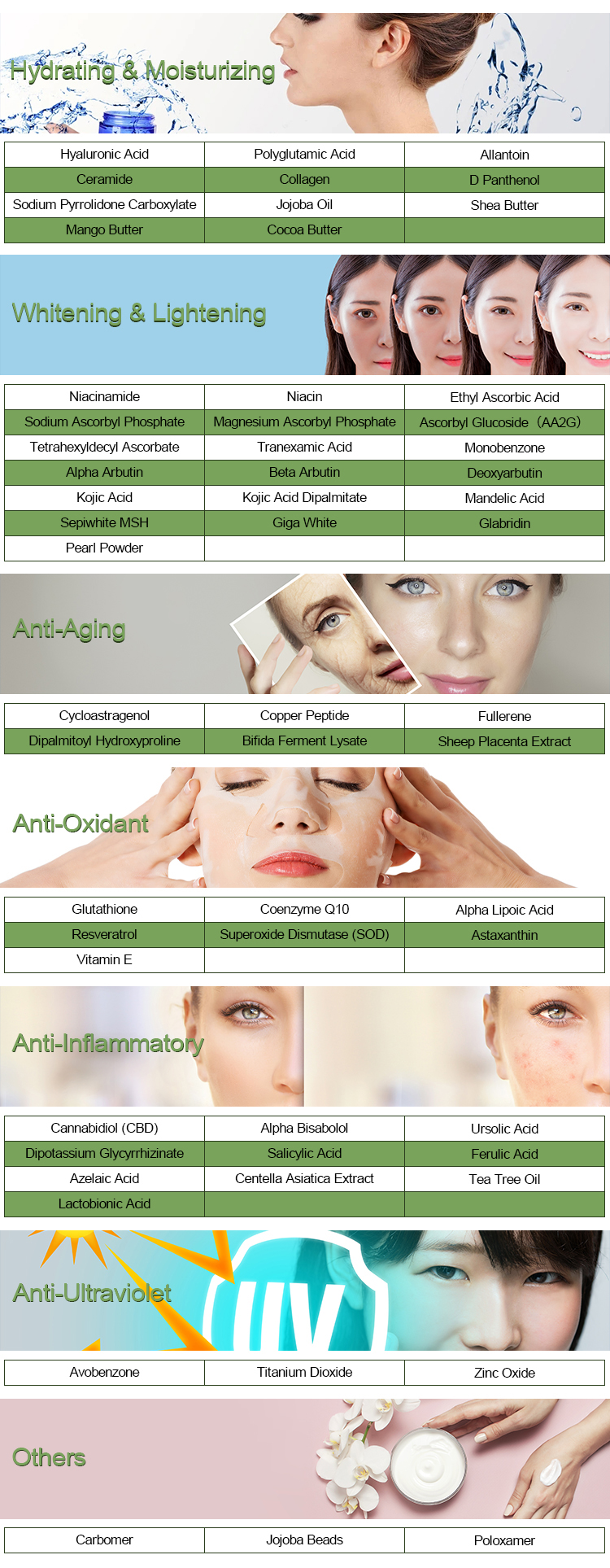Nicotinamide, also known as niacinamide or vitamin B3, is an essential nutrient that offers several health benefits.
Benefits of Nicotinamide
Skin Health:
- Nicotinamide has been extensively studied for its positive effects on skin health. It can improve the appearance of fine lines, wrinkles, and hyperpigmentation.
- It helps maintain the skin’s moisture barrier, preventing water loss and keeping the skin hydrated.
- Nicotinamide can reduce redness and inflammation associated with conditions like acne and rosacea.

Skin Cancer Prevention:
- Some studies suggest that nicotinamide may reduce the risk of skin cancer, particularly non-melanoma skin cancers, when taken orally or applied topically.
Photoprotection:
- Nicotinamide can provide protection against UV radiation and may help prevent sunburn. It does this by repairing UV-induced DNA damage and reducing inflammation.
Anti-Inflammatory:
- Nicotinamide has anti-inflammatory properties and can be used to alleviate symptoms of inflammatory skin conditions like eczema and psoriasis.
Antioxidant Effects:
- As an antioxidant, nicotinamide helps neutralize harmful free radicals in the body, which can contribute to cellular damage and aging.
Energy Production:
- Nicotinamide is a crucial component of the coenzymes NAD (nicotinamide adenine dinucleotide) and NADP (nicotinamide adenine dinucleotide phosphate), which are involved in energy production within cells. These coenzymes play a key role in metabolism.
Neuroprotection:
- Some research suggests that nicotinamide may have neuroprotective properties and could be beneficial in conditions like Alzheimer’s disease and Parkinson’s disease, although more studies are needed.
Cardiovascular Health:
- Nicotinamide may help improve cholesterol levels and reduce the risk of cardiovascular diseases.
Diabetes Management:
- Nicotinamide has been studied for its potential to improve insulin sensitivity and help manage blood sugar levels in people with diabetes.
Wound Healing:
- Nicotinamide can accelerate wound healing by promoting the growth of blood vessels and skin cells at the site of injury.

Arthritis:
- Some studies have suggested that nicotinamide may have a role in reducing inflammation and joint pain associated with osteoarthritis.
Mental Health:
- While research is ongoing, nicotinamide’s role in neurotransmitter synthesis may have implications for mental health and mood regulation.
It’s important to note that while nicotinamide offers many potential benefits, the dosage and form (oral supplements, topical creams, etc.) should be carefully considered and discussed with a healthcare professional. Additionally, individual responses to nicotinamide may vary, so it’s essential to consult with a healthcare provider before starting any supplementation.
